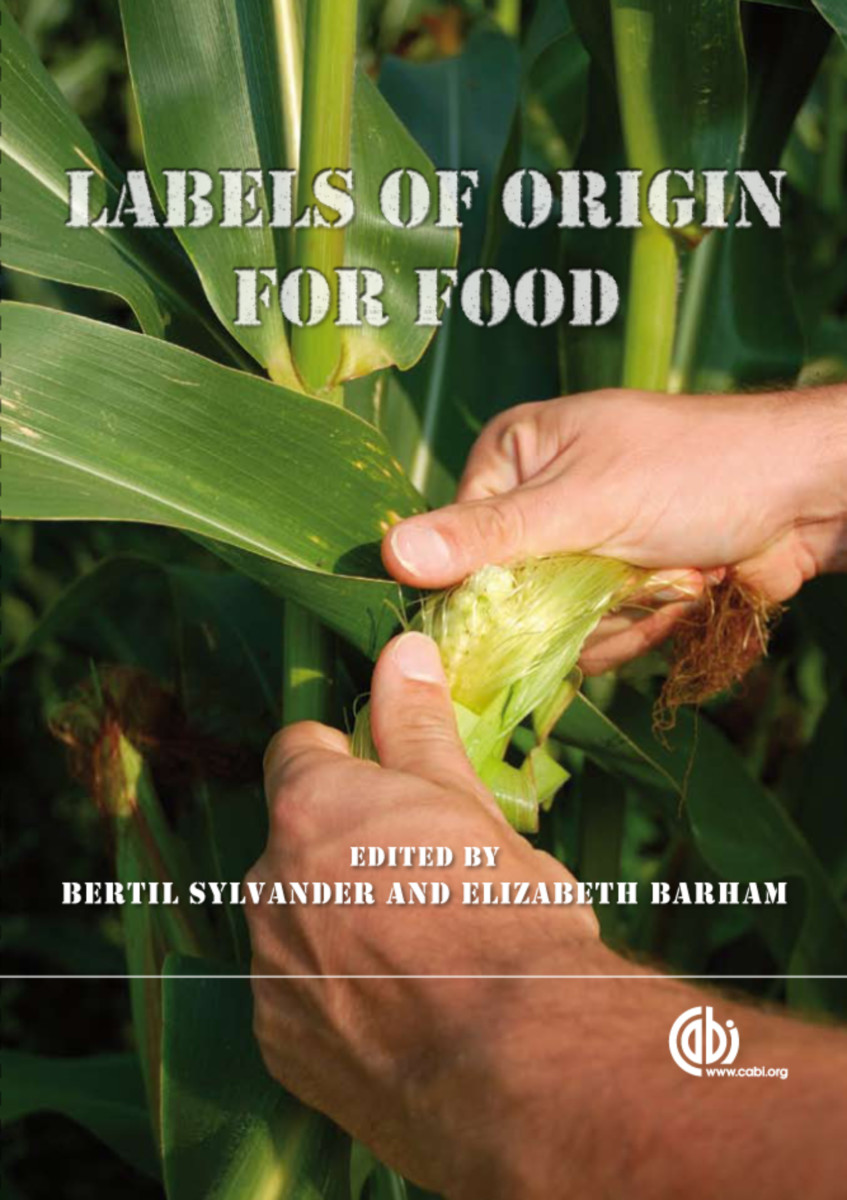Labels of Origin for Food
Local Development, Global Recognition
- Publisher
CABI - Published
24th June 2011 - ISBN 9781845933524
- Language English
- Pages 240 pp.
- Size 6.875" x 9.75"
- Images figures
Agri-food traditional, regional and typical products are an important resource for agricultural and rural development in many areas of the European Union. These Origin Labeled Products (OLPs) activate a complex system of relationships involving the local production and marketing and distribution systems, rural development dynamics and the consumer.
Based on research conducted in European countries, this book provides an account of the current state of OLPs, enabling a better understanding of their characteristics and evolution in the agri-food system. It also assesses public policies at various levels and the effects of legal protection, financial support and public promotional initiatives on those involved, and consumers’ and citizens’ concerns and expectations.
"This book is helpful in outlining through its case studies, the delimitation of the relevant geographical area, the definition of a control plan and process, writing codes of practice, and the establishment of collective marketing and promotion strategies. It will play an important role in demystifying GIs."
Michael Blakeney - , Bio-Science Law Review
"This book is helpful in outlining through its case studies, the delimitation of the relevant geographical area, the definition of a control plan and process, writing codes of practice, and the establishment of collective marketing and promotion strategies. It will play an important role in demystifying GIs."
Michael Blakeney - , Bio-Science Law Review
Part I. Research on Geographical Indications in Europe
1. Geographical Origin: A Complex Feature of Agro-Food Products
2. Legal Debates Surrounding Geographical Indications
3. Current Situation and Potential Development of Geographical Indications in Europe
4. Geographical Indications: Collective Organisation and Management
5. Geographical Indications, Consumers and Citizens
6. Origin Products, Geographical Indications and Rural Development
Part II. Global Perspectives on Geographical Indications
7. Public Policies and Geographical Indications
8. Globalisation and Geographical Indications
9. Geographical Indications in the USA
10. Geographical Indications in Developing Countries
Epilogue
Appendix 1 - Case Studies in Europe
Appendix 2 - PGI and PDO System Maps
Elizabeth Barham
Elizabeth Barham is at the University of Arkansas.
Bertil Sylvander
Bertil Sylvander is at INRA-SAD-Unité, France.


